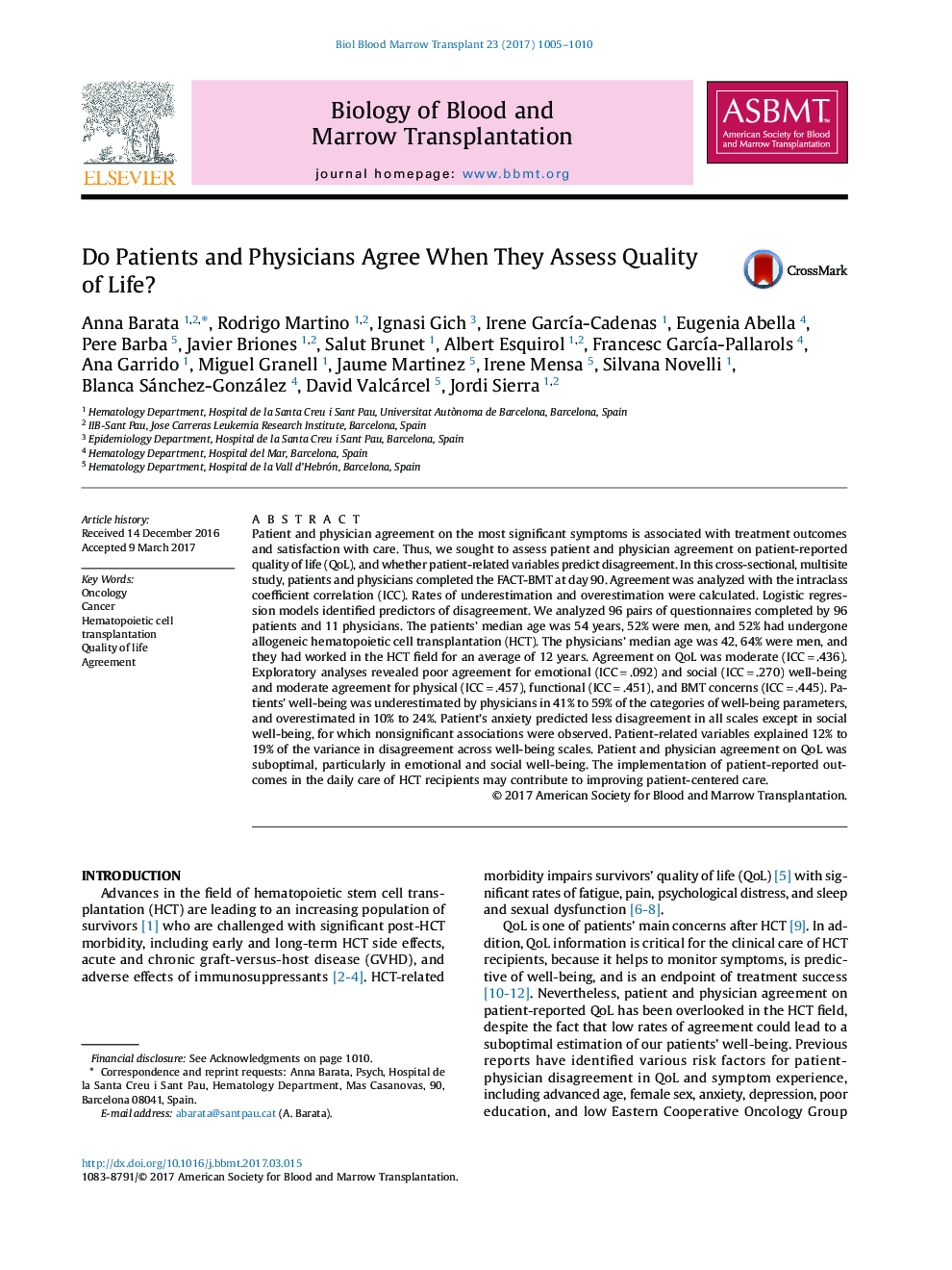| کد مقاله | کد نشریه | سال انتشار | مقاله انگلیسی | نسخه تمام متن |
|---|---|---|---|---|
| 5524190 | 1546240 | 2017 | 6 صفحه PDF | دانلود رایگان |
- Patient and physician agreement on patient-reported quality of life is moderate.
- Exploratory analyses revealed poor agreement in social and emotional well-being.
- Moderate agreement was found on physical and functional well-being and BMT concerns.
- Physicians underestimated patients' well-being.
- Patient-related variables poorly explained the variance within disagreement.
Patient and physician agreement on the most significant symptoms is associated with treatment outcomes and satisfaction with care. Thus, we sought to assess patient and physician agreement on patient-reported quality of life (QoL), and whether patient-related variables predict disagreement. In this cross-sectional, multisite study, patients and physicians completed the FACT-BMT at day 90. Agreement was analyzed with the intraclass coefficient correlation (ICC). Rates of underestimation and overestimation were calculated. Logistic regression models identified predictors of disagreement. We analyzed 96 pairs of questionnaires completed by 96 patients and 11 physicians. The patients' median age was 54 years, 52% were men, and 52% had undergone allogeneic hematopoietic cell transplantation (HCT). The physicians' median age was 42, 64% were men, and they had worked in the HCT field for an average of 12 years. Agreement on QoL was moderate (ICCâ=â.436). Exploratory analyses revealed poor agreement for emotional (ICCâ=â.092) and social (ICCâ=â.270) well-being and moderate agreement for physical (ICCâ=â.457), functional (ICCâ=â.451), and BMT concerns (ICCâ=â.445). Patients' well-being was underestimated by physicians in 41% to 59% of the categories of well-being parameters, and overestimated in 10% to 24%. Patient's anxiety predicted less disagreement in all scales except in social well-being, for which nonsignificant associations were observed. Patient-related variables explained 12% to 19% of the variance in disagreement across well-being scales. Patient and physician agreement on QoL was suboptimal, particularly in emotional and social well-being. The implementation of patient-reported outcomes in the daily care of HCT recipients may contribute to improving patient-centered care.
Journal: Biology of Blood and Marrow Transplantation - Volume 23, Issue 6, June 2017, Pages 1005-1010
